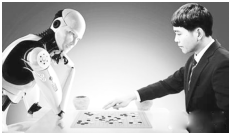5.weakness( )
| A. | reason | B. | great | C. | weapon | D. | idea |
4.Taking in less fat and doing more exercise will keep you in good .( )
| A. | shape | B. | order | C. | status | D. | position |
3.-I don't want to repair your car for nothing.
-You get well paid,as long as you do a good job,I promise you.( )
-You get well paid,as long as you do a good job,I promise you.( )
| A. | must | B. | should | C. | shall | D. | may |
2.We don't know the precise use Google makes of Chinese famous works,but its scanning of them without permission is illegal.( )
0 136007 136015 136021 136025 136031 136033 136037 136043 136045 136051 136057 136061 136063 136067 136073 136075 136081 136085 136087 136091 136093 136097 136099 136101 136102 136103 136105 136106 136107 136109 136111 136115 136117 136121 136123 136127 136133 136135 136141 136145 136147 136151 136157 136163 136165 136171 136175 136177 136183 136187 136193 136201 151629
| A. | which | B. | how | C. | when | D. | what |
 Let us all raise a glass to AlphaGo and the advance of artificial intelligence.AlphaGo,DeepMind's Go-playing AI,just defeated the best Go-playing human,Lee Sedol.But as we drink to its success,we should also begin trying to understand what it means for the future.
Let us all raise a glass to AlphaGo and the advance of artificial intelligence.AlphaGo,DeepMind's Go-playing AI,just defeated the best Go-playing human,Lee Sedol.But as we drink to its success,we should also begin trying to understand what it means for the future.